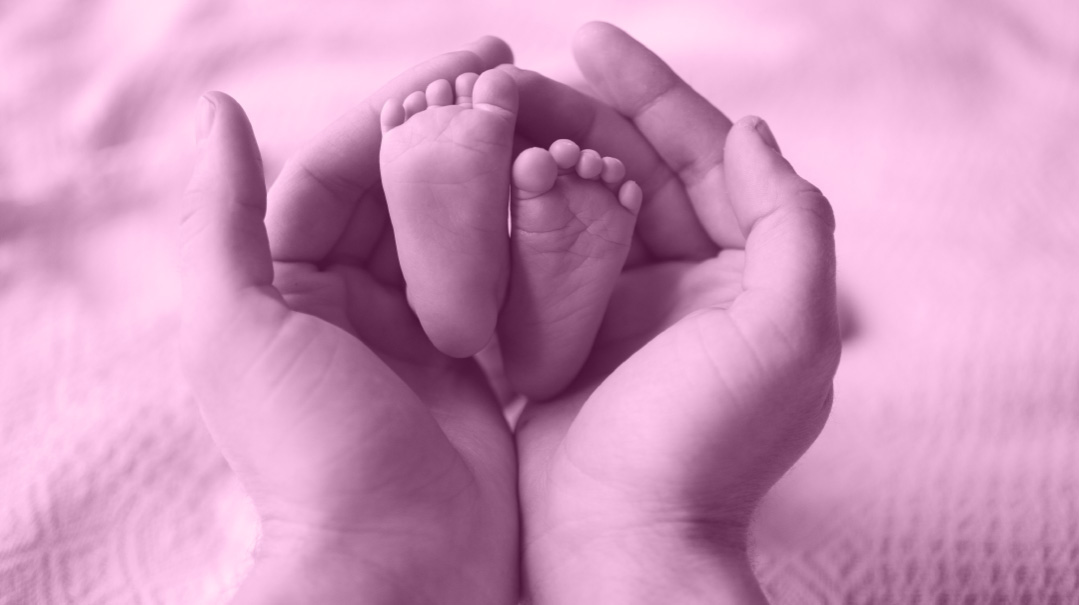Meet… Dr. Clara Surowitz
| September 19, 2023The founder and director of the Tru Birth Center wants women to feel empowered by their natural birth experience

ASfar back as I can remember, I wanted to be a doctor. I actually found a diary I wrote in fifth grade that said I wanted to be an Obstetrician Gynecologist. I didn’t write OB-GYN; I spelled the whole thing out. No shortcuts for me! Throughout my schooling, I was always in pursuit of that. It impacted the classes I took in high school and what I studied in college.
In college I met my husband, also from the Detroit area, and during our junior year, we studied together at Hebrew University. Both of us came from more secular backgrounds, and it was during that year that we had our first exposure to Shabbos.
When it came time to apply to medical school, my guidance counselor told me that the competitive environment combined with government quotas made it unlikely that I’d get into an American medical school. Ben-Gurion University had a collaborative program with Columbia University, and I applied to Ben-Gurion and was accepted. That’s when we really started our journey in Israel.
My husband and I got married in June and moved to Be’er Sheva in August, which in 2000 was a completely different place from what it is now. It was so hot. I felt the warmest there I’d ever felt.
My anatomy professor in medical school was Modern Orthodox, and we spent a lot of Shabbosim in their house. That was the first exposure to a kind of Yiddishkeit that I could identify with. By my third year of medical school, my husband was really very interested in becoming frum, and he ended up going to Aish HaTorah.
This wasn’t exactly in my life plan, but at the same time, I’ve always been a seeker of truth. Even though I realized it was going to change my life, I couldn’t turn away because I could feel that this was authentic. By the time we moved back to the Detroit area for my residency, we were full-fledged baalei teshuvah. The Detroit community was so welcoming and warm, and became a sort of extended family for us during those first years back in America.
After my residency, I was planning on staying in Michigan. That’s where our families were, that’s where our community was, but this was in 2009 when the economy crashed, including all the car companies in Detroit. The contract I’d almost finalized with the hospital was retracted because they just didn’t know what was going to happen financially with all the car companies being in such bad shape. So that was, I guess, Hashem’s way of pushing me out of Detroit.
I was offered a job in St. Louis, but it wouldn’t have been a shomer Shabbos arrangement, and after going through that with my residency, I wasn’t interested in repeating the experience. I ended up being offered a job with a physician who had a practice in a place called Little Silver, New Jersey, which I’d never heard of. The recruiter told me it was about 30 minutes from a town called Lakewood. Being a relatively fresh baalas teshuvah, I really had no idea what Lakewood was like. Unsurprisingly, we did go through some culture shock when we moved there!
From Personal Experience
My own birth experiences definitely inform how I practice as an OB-GYN. My first baby was born in Israel. It wasn’t the best experience. My next baby was born in Detroit, and I barely made it to the hospital with him. My third baby was born in a natural birth center in the Detroit area, and that was absolutely my best birth. It was a completely supportive experience. I was able to labor in the water, and I felt really good after she was born, compared to how I’d felt after my first two.
My next two were born in Lakewood, and I had epidurals. I was induced for both of them, and my last baby was a C-section. I feel like Hashem has really given me a wide range of experiences in my births so that I could really empathize and be with my patients in so many different situations.
Working as a doctor during my residency and in the two practices I was a part of before I opened my own made me realize that the birth culture in the hospital and the way classical OB-GYN is practiced leaves a lot of room for improvement. Women are so far removed from their birth experiences they don’t even know what to ask for.
A Center is Born
Ever since I had my daughter, Esti, in the birth center in Detroit, I knew that this was the type of empowering experience I wanted to give women. But it seemed like a far-off dream. I wasn’t even sure where to start, and life was plenty busy without embarking on this project.
It was about ten years ago that my husband and I really began researching what it would take to open a natural birth center. The laws in New Jersey around facilities are very restrictive, especially for physicians trying to open a facility, so we had to navigate a lot of that. In the end, it took us a full eight years to get it open. It felt like another birth!
In my private practice, I’ve had patients say to me, “Oh, are you going to treat me differently because I don’t want a natural birth or because I don’t want to go to your birth center?”
That’s not the purpose of the birth center.
The purpose of the natural birth center is to offer an option to women who want to have that kind of experience. It’s not an option for some women who have high-risk pregnancies. There are also women who have uncomplicated obstetric histories but really just want an epidural. Some women want an unmedicated birth, but in the hospital. Whatever they want, my team and I are there to support them.
The birth center is kind of halfway between the hospital and having a home birth. You walk into the birth center, and it’s a very serene place. The colors are very calming. We have a water feature, we have low lighting, and we have the birth rooms, which are really like luxury hotel rooms. We’ve gone over and above what the typical birth center looks like.
It was important to me that the atmosphere is really welcoming and comfortable. There’s basically a full-size bed in the room. It’s not a hospital bed. There’s no visible medical equipment in the room, it’s all hidden away.
When women come in, we make sure that they’re in labor first. We check their vital signs and make sure baby’s okay and mom is okay. Then they can walk around, or they can be on the bed. We have different types of balls they can sit on, as well as birthing stools. They can listen to any type of music they want. We have diffusers and different aroma therapy essential oils that we can put into the diffuser for them. We can turn the lights down.
Laboring women can have whomever they want with them — a doula, their mother, sisters. Their husband can either be in the room with them, or go to the family area, which is often where men go to say Tehillim or daven.
On staff are three doctors and five certified nurse midwives. Each birth is attended by a nurse, an RN, and either a midwife or a doctor. Of course, safety is the number one question, and the birth center has all the medical equipment needed if there’s an emergency, such as a neonatal resuscitation.
We screen out any patient who is at higher risk for emergencies, like women who have had a C-section, or have high blood pressure, or whose baby is breech or is growth restricted or has any kind of issue. They need to give birth in a hospital, so that an operating room is nearby in case an emergency C-section becomes necessary.
We’ve had almost 400 babies born in two and a half years. Only one ended in a C-section, and it wasn’t an emergency. That’s a 0. 3 percent C-section rate. So that’s what I tell people: the proof is in the pudding. If you can have almost 400 babies and only one C-section, then you know it’s a safe place.
My favorite part of running the birth center is being at the births. It’s an incredible feeling to see a woman who has just given birth holding her baby and looking at us with an aura of awe saying, “I can’t believe that this just happened. This is nothing like my previous births.”
It’s so calm, it’s so supportive, and the women are so empowered. They can’t wrap their minds around what they just did — without any help, basically. I mean, we’re there to support them, but we’re not telling them what to do. They’re guiding their own labor and their own birth, and they’re so in awe of what they’ve done afterward.
I’ve already had women come back for their second birth at the birth center because they’ve had such an amazing experience with their first one.
What’s one thing on your bucket list?
I hope I get to do more traveling. I love to travel. I love to take my family on vacations on a beach, in a house with no people around. That’s how I get my relaxation.
Are you an early bird or a night owl?
Definitely more of a night owl. Although lately I think I’m more of a middle of the day kind of person. I definitely would love to train myself to get up early because I see that people who get up early are more productive, but so far it hasn’t happened.
If you could have a superpower, what would it be?
I don’t know if this qualifies as a superpower, but I’d love to clone myself. I feel pulled in so many directions, and if I could clone myself, I could be so much more effective. I would put one clone at the hospital, one clone at home, and then the real me would be in Florida.
(Originally featured in Family First, Issue 861)
Oops! We could not locate your form.







